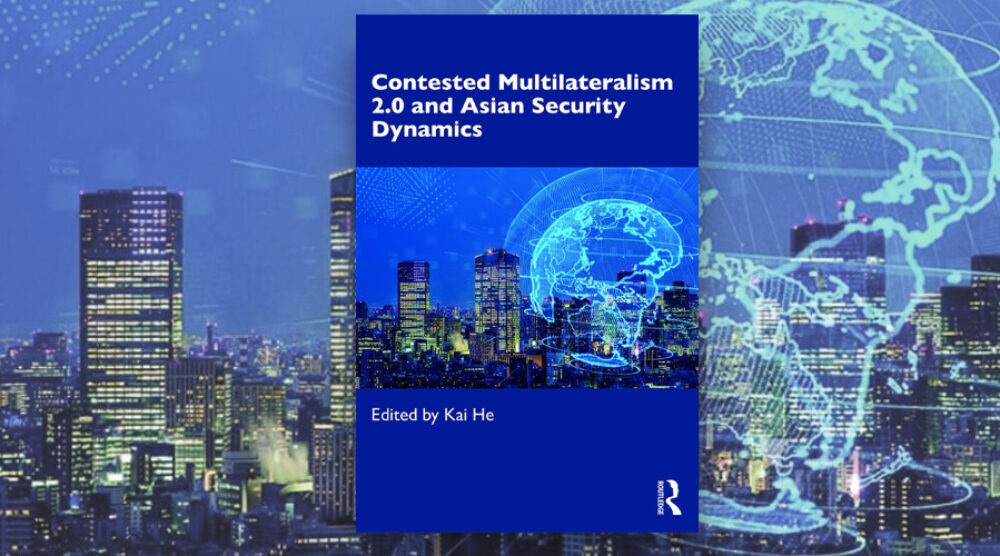Since the 2008 global financial crisis (GFC), the strategic competition between the United States and China has occupied the media headlines on world politics. Scholars and pundits are fascinated by the question of whether the United States and China will fall into the Thucydides Trap, in which a ruling power will tragically fight against a rising power in order to overcome the fear generated by the power transition in the international system.
One intriguing, but largely omitted, phenomenon is that the US–China strategic rivalry and competition is quite different from what the United States and the Soviet Union experienced during the Cold War. While there has been a prolonged trade war between the United States and China since President Donald Trump came to power in 2016, a trade war is much better than a Cold War. We cannot rule out the possibility that a new Cold War between the United States and China may take place. Nevertheless, it is clear that the international order transition accompanying US–China strategic competition will be different from previous power transitions in history.
Multilateralism is one of the factors that will contribute to a different international order transition in the 21st century. This is why we have witnessed the emergence of ‘contested multilateralism 2.0’ in the Asia Pacific since the 2008 GFC, in which all major players in the region, including the United States, China, Japan, Australia, South Korea, and ASEAN, have actively engaged in multilateralism to differing degrees. Although withdrawing from the Trans-Pacific Partnership, Trump emphasised the ‘rules-based order in the Indo Pacific’ by reviving the Quadrilateral Security Dialogue (the so-called ‘Quad 2.0’) with Japan, Australia, and India in 2017. The United States will continue its leadership contestation with China in the region through a variety of existing regional instrumentalities and institutions.
Will ‘multilateralism 2.0’ still matter for regional security and international order transition? If so, how? How will regional actors employ differing institutional strategies to maximize their respective national interests during the period of international order transition? Will the “Indo-Pacific turn” be a blessing or a curse for regional stability and prosperity?
Kai He and his contributors debate the reasons for this contested multilateralism and the impacts it will have on the region’s security and political challenges. Using a diverse range of theoretical and empirical perspectives, these leading scholars contribute views on the diverse multilateral strategies of the great and middle powers in the region. As in other edited volumes, there is no one consensus argument shared among the contributors. Instead, the authors represent diverse IR theoretical approaches, different methodologies, and competing conclusions.
For example, some scholars argue that the new wave of multilateralism after the GFC is a result of institutional balancing among major powers in the context of regional order transition. The unintended consequence of institutional balancing among major powers might be a peaceful institutional order transition in the Asia Pacific. However, other scholars in the volume challenge this notion of “multilateralism 2.0” by suggesting that Asia’s multilateralism has been a continuous process for more than 20 years and recent regional multilateralism has taken on competitive characteristics reflecting Asia’s more contested dynamics.
In addition, other scholars highlight the “ineffectiveness” of Asian multilateralism in general and suggest that there is a convergent interest among major powers to keep Asian multilateralism as ineffective as possible. Readers will be intrigued by these diverse and contending views regarding the roots and consequences of “multilateralism 2.0” after the GFC.
Contested Multilateralism 2.0 and Asian Security Dynamics sheds some light on multilateralism and the future regional order transition against a background of US–China strategic competition in the 21st century. This collection will be of great interest to scholars and students of international relations in the Asia Pacific and of great value to policy makers in the region and beyond. This book is supported by the Australian Research Council [grant number FT160100355] and a policy-oriented research grant from the Korea Foundation.
For more information on Contested Multilateralism 2.0 and Asian Security Dynamics (Routledge 2020) see here.
AUTHOR
Kai He is a Professor of International Relations in the Griffith Asia Institute and Centre for Governance and Public Policy at Griffith University in Brisbane, Australia.








